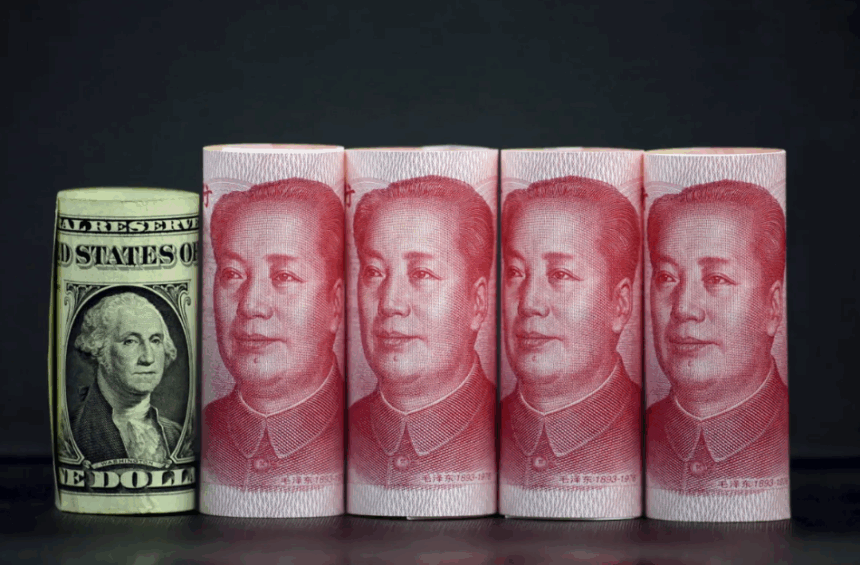Summary by Geopolist | Istanbul Center for Geopolitics:
Something curious is happening in global markets: the Chinese yuan is rising, even as China’s economy faces serious headwinds—from a deepening property crisis to ongoing deflation pressures and an easing central bank. The surprising uptick in the currency since a quiet meeting in Geneva between top U.S. and Chinese officials has investors wondering: did something shift behind the scenes?
Only Chinese Vice Premier He Lifeng and U.S. Treasury Secretary Scott Bessent know for sure. But whether or not a backroom deal was struck, the yuan’s rise is setting off ripples across global markets—and it might just signal a major turning point for China’s economic strategy.
A Surprising Surge Amid Economic Gloom
On paper, the yuan should be weakening. China’s property sector is in crisis, inflation is falling, and the central bank is in stimulus mode. Yet the currency is doing the opposite—rising. And this unusual dynamic has analysts like Goldman Sachs betting that Chinese stocks will benefit. As Goldman’s strategist Kinger Lau notes, a 1% rise in the yuan often correlates with a 3% gain in Chinese equities. That’s not a small move.
Some traders suspect the U.S. and China may have quietly reached a currency understanding, especially given how politically sensitive the yuan-dollar relationship is in Washington. But even if no formal agreement was made, the signal is clear: China seems willing—for now—to tolerate a stronger currency.
Trump’s Chaos Is China’s Opening
This shift comes at a time when the U.S., under Donald Trump, is projecting chaos—from wild tariffs to inward-looking immigration and trade policies. That instability is pushing some investors to seek refuge in what they now see as relative calm in China.
It’s a moment President Xi Jinping has long been preparing for. Back in 2016, he made yuan internationalization a strategic priority, securing a seat for the Chinese currency in the International Monetary Fund’s elite reserve basket. But progress since then has been slow—largely because Beijing has continued to tightly control capital flows and resisted making the yuan fully convertible.
Despite China’s massive $18 trillion economy and status as the top trading partner for over 120 countries, the yuan still accounts for just 2.2% of global foreign exchange reserves—versus 58% for the U.S. dollar. But if Trump’s volatility continues, China could seize the moment to push the yuan’s international role further than ever before.
A Rising Yuan Signals Confidence—and Reform
Economist Andy Xie argues that a rising yuan sends a powerful message: that Beijing is confident in its economy and willing to let global markets weigh in. More importantly, it could help China fix some of its own structural flaws.
For one, a stronger yuan would ease the burden on heavily indebted property developers who need to make payments on dollar-denominated bonds. It would also help rein in overcapacity and reduce the temptation to over-rely on exports. And crucially, it would encourage domestic consumption—key to China’s long-term goal of shifting from an investment-heavy model to a consumer-driven one.
Learning from Japan’s Mistakes
China is also taking notes from Japan’s experience. For more than a decade, Japan has relied on a weak yen to try and stimulate growth. It worked temporarily—boosting corporate profits and exports—but ultimately, it became a crutch. Structural reforms stalled, innovation slowed, and now Japan is dealing with rising inflation and stagnating productivity. Politicians and CEOs had little incentive to modernize when the currency was doing the heavy lifting.
Xi doesn’t want to fall into that trap. A stronger yuan could force companies to compete on innovation and efficiency, rather than relying on currency manipulation. That’s a harder path—but it’s the one that leads to sustainable, high-quality growth.
Equity and Bond Markets Are Watching
Market reactions are already reflecting this pivot. As Goldman Sachs notes, Chinese equities typically thrive during periods of yuan strength. Investors are also eyeing Chinese bonds—not just as a hedge against unstable U.S. markets, but as a vote of confidence in China’s direction.
A stronger yuan lowers import costs, makes debt easier to manage, and signals to the world that China is serious about liberalizing its financial system. It also forces policymakers and CEOs alike to focus on real productivity gains instead of financial gimmicks.
Toward a More Global Yuan
Ultimately, if Xi truly wants the yuan to rival the dollar as a global currency, Beijing must embrace more market-driven reforms. That means loosening capital controls, allowing genuine price discovery, and creating more transparent financial institutions. These steps would make China more attractive to long-term investors—and help reduce global reliance on the dollar.
Letting the yuan appreciate, even modestly, may seem like a small technical move. But in reality, it could be the beginning of a much larger strategic shift—one that aligns with China’s long-term goals and sets the stage for a new era in global finance.
Read more here.







